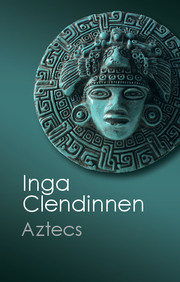Book contents
- Frontmatter
- Dedication
- Contents
- List of illustrations
- Acknowledgements
- Acknowledgements for Literary Material and Illustrations
- Note on Nahuatl
- Maps
- Epigraph
- Introduction
- Part I The City
- Part II Roles
- 3 Victims
- 4 Warriors, Priests and Merchants
- 5 The Masculine Self Discovered
- 6 Wives
- 7 Mothers
- 8 The Female Being Revealed
- Part III The Sacred
- Part IV The City Destroyed
- A Question of Sources
- Monthly Ceremonies of theSeasonal (Solar) Calendar: Xiuitl
- The Mexica Pantheon
- Notes
- Select Bibliography
- Index
- Artefacts
7 - Mothers
from Part II - Roles
Published online by Cambridge University Press: 05 June 2014
- Frontmatter
- Dedication
- Contents
- List of illustrations
- Acknowledgements
- Acknowledgements for Literary Material and Illustrations
- Note on Nahuatl
- Maps
- Epigraph
- Introduction
- Part I The City
- Part II Roles
- 3 Victims
- 4 Warriors, Priests and Merchants
- 5 The Masculine Self Discovered
- 6 Wives
- 7 Mothers
- 8 The Female Being Revealed
- Part III The Sacred
- Part IV The City Destroyed
- A Question of Sources
- Monthly Ceremonies of theSeasonal (Solar) Calendar: Xiuitl
- The Mexica Pantheon
- Notes
- Select Bibliography
- Index
- Artefacts
Summary
There is…some persuasive rationale for dwelling on ontogeny, for its early phases take up a goodly proportion of human life for reasons intrinsic to the nature of human evolution; and yet, that fatefulness throughout history has been ignored, repressed, and mythologized for the same reasons. As we wish to study, then, the ontogenetic origins of man's visions of himself, we must become aware of the possibility that over-all images of childhood, and age-old repressions concerning it, are and always have been important aspects of changing world views…the mere search for beginnings always harbours some vision of an innocence lost or a hidden curse to be dealt with – and both with some sense of inescapable predestination.
Erik Erikson, Toys and ReasonsThey give them milk for four years, and they love their infants so much and care for them with such affection and solicitude that they avoid having contact with their husbands so that they can continue giving milk to the child for all of that time, and so that no ill may come to it through their pregnancy. If they are widowed and the child is not yet weaned, they will not remarry until the child has no need of milk, so they will not get pregnant. If a mother does so, it is thought to be a treacherous action.
Fr. Bartolomé de las Casas, Apologética historia sumaria- Type
- Chapter
- Information
- AztecsAn Interpretation, pp. 246 - 291Publisher: Cambridge University PressPrint publication year: 2014



